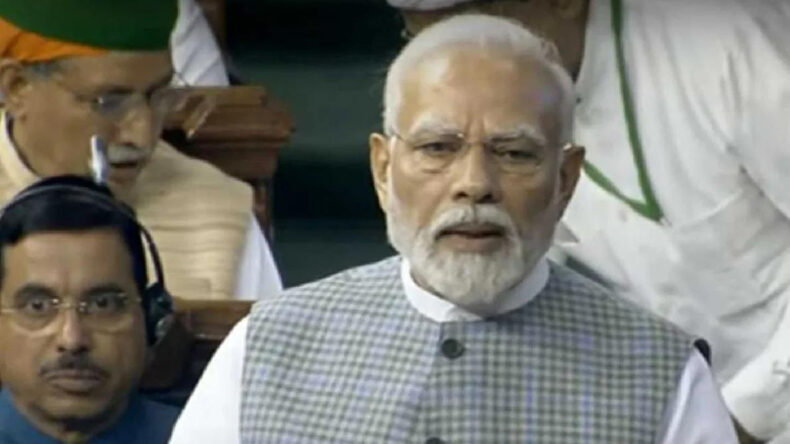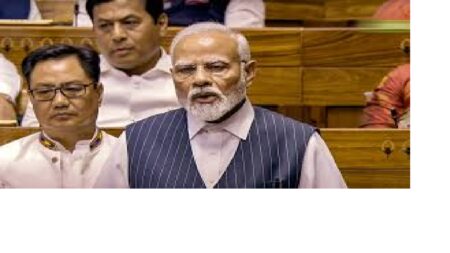New Delhi – Prime Minister Narendra Modi delivered an emotional message to Parliament on the opening day of a special session, commemorating a watershed moment in Indian history as Parliament prepares to relocate to a new facility. In his speech, the Prime Minister recalled the iconic ancient Parliament building, congratulated his government’s accomplishments, and remembered the sacrifices made by security forces during the 2001 terror attack on Parliament.
The Prime Minister opened his speech by recognising the “historic decisions” made by his government that had left an everlasting impression on the nation. He listed the repeal of Article 370, the adoption of the Goods and Services Tax (GST), the passage of the ‘One Rank-One Pension’ (OROP) bill, and the implementation of a 10% reservation for Economically Weaker Sections (EWS) as watershed moments.
“Bidding goodbye to this building is an emotional moment,” Modi said of the former Parliament building. He also emphasised the spirit of togetherness and shared purpose among MPs, which transcended partisan divisions. MPs from the ruling Bharatiya Janata Party agreed with him, beating their desks in unison.
The Prime Minister’s speech was not only about recognising accomplishments; he also paid tribute to the building’s history. He recalled the awful terrorist attack on Parliament in 2001, stressing that it was an attack on the core essence of democracy, not simply a physical institution. Modi expressed his sincere gratitude to the security personnel who died safeguarding the institution.
During his speech, Prime Minister Modi referred to India as the ‘Mother of Democracy,’ a moniker that sparked controversy when it was used in documents provided to G20 leaders and international officials during a recent conference in Delhi. Historically, democracy has been connected with ancient Athens, Greece, but Modi’s mention highlighted India’s unique democratic journey.
Modi also recalled his early days as a Member of Parliament, referring to the old Parliament building as the “Temple of Democracy.” He expressed heartfelt thanks for the chances he had received, recalling his humble origins as a poor family youngster living on a railway platform.
The Prime Minister recognised the historic importance of the old Parliament building, which originally hosted the Imperial Legislative Council during British colonial control. Despite its colonial origins, Modi emphasised that the structure was a testament to the Indian people’s hard work and dedication.
Shifting gears, Prime Minister Modi praised India’s achievements in space exploration, particularly the Chandrayaan-3 Moon mission, for making the world proud. He praised the recent G20 Summit’s success, crediting it to the unity and efforts of India’s 140 crore (1.4 billion) population, emphasising that it was not the achievement of any one or political group.
Reflecting on the G20 Summit, Modi expressed his joy that the African Union would become a member during India’s chairmanship. He recalled a touching occasion when African Union President Azali Assoumani of the Comoros voiced his emotions, stating, “Perhaps I will break down while speaking.” The addition of the African Union emphasised India’s growing global importance.
The Prime Minister also emphasised the historic Delhi Declaration, which was issued by G20 leaders. Negotiating this declaration was difficult due to the complications of Russia’s attack on Ukraine and Western countries’ positions on the crisis. However, India’s role in bringing this accord to fruition demonstrated the country’s power and influence in global diplomacy.
As the old Parliament building prepares to be demolished to make way for a new construction, Prime Minister Modi’s speech served as a sombre reflection on India’s path from colonial past to democratic present, and its hopes for a better future. The nation’s successes and difficulties, as well as the sacrifices of those who defend its democratic institutions, were all highlighted in a passionate address that resonated with legislators and the public as a whole.













